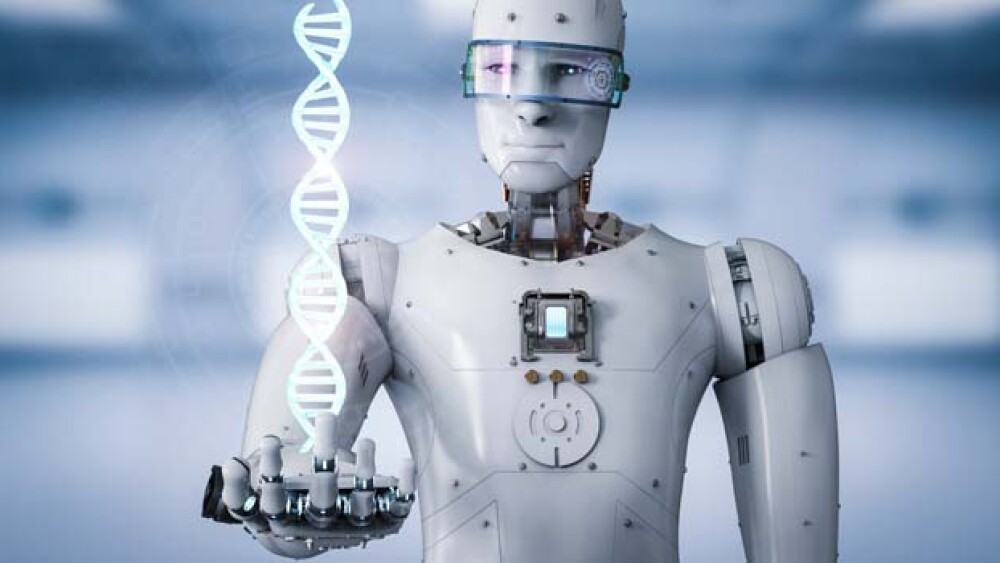According to consultant firm Frost & Sullivan, artificial intelligence (AI) systems will be the next big players in both global healthcare and individual gene editing. By 2021, the firm predicts that AI will be responsible for 6.7 billion dollars in revenue.
The world of genomics has made abrupt strides in the past several years, with the first CRISPR-edited babies being born just a few weeks ago. Using advanced CRISPR technology, Scientist Jiankui He ‘announced that twin girls with an edited gene that reduces the risk of contracting HIV “came crying into this world as healthy as any other babies a few weeks ago.”’ The announcement was met with great backlash, sparking ‘outrage from many researchers and ethicists who say implanting edited embryos to create babies is premature and exposes the children to unnecessary health risks. Opponents also fear the creation of “designer babies,” children edited to enhance their intelligence, athleticism or other traits.’
CRISPR technology is used in editing human genomes. Biospace formerly reported on KSQ Therapeutics’ “$80 million Series C financing that will be put towards the development of oncology drug candidates via CRISPRomics™, a drug discovery engine that creates insights specific to individual human genes on an industrial scale.” The rapid advancement of CRISPR capability does not end here, however.
According to consultant firm Frost & Sullivan, artificial intelligence (AI) systems will be the next big players in both global healthcare and individual gene editing. By 2021, the firm predicts that AI will be responsible for 6.7 billion dollars in revenue. Author Bernard Marr reports to Forbes that “One area that machine learning is significantly evolving is genomics—the study of the complete set of genes within an organism. While much attention has been paid to the implications for human health, genetic sequencing and analysis could also be ground-breaking for agriculture and animal husbandry. When researchers can sequence and analyze DNA, something that artificial intelligence systems make faster, cheaper and more accurate, they gain perspective on the particular genetic blueprint that orchestrates all activities of that organism. With this insight, they can make decisions about care, what an organism might be susceptible to in the future, what mutations might cause different diseases and how to prepare for the future.”
Multiple aspects of human life are determined by an individual’s genetics, including predispositions to illnesses such as cystic fibrosis, Huntington’s disease, sickle cell anemia, and others. Better understandings of genetic makeup can help scientists comprehend, predict, and even change the function of genes. The introduction of machine learning into this world will add a possibility of accuracy and wide-scale efficiency to both gene sequencing and gene editing.
According to a Wilson Center post by Elonore Pauwels, “despite our swiftly improving capacity to read, sequence and edit the information contained in the human genome, we still don’t understand most of the genome’s functions and how they impact our physiology and health; we still need to decipher the functions of innumerable genes and their mutated variants. Experts such as Jun Wang postulate that if you want to understand the relationship between genes and physiological traits, you need an AI system to identify those complex rules. For example, the company Deep Genomics is analyzing genomic data using deep learning – the process by which a computer integrates a very large amount of data and then, based on its learning techniques drawn from analyzing other datasets, interprets that new information. Deep Genomics’ software programs are trying not only to build a map that decodes the functions of our genes, but also predict the effect of a genetic mutation on our overall genome. Another advantage AI systems could bring to clinical research is to process simultaneously huge amounts of genomic, physiological, health, environmental and lifestyle data, meaning these systems would read the content of our genomes, our smartphones and our medical records, and draw inferences [sic] about what they have learned. For example, the goal of a company like iCarbonX is to be able to study the evolution of our genome as we age and design personalized health predictions such as susceptibilities to diseases and tailored treatment options.”
There are also many potential negatives in gene editing and the use of CRISPR technologies. ‘Some companies are working on technologies that support editing of genes by making changes to the DNA at the cellular level. CRISPR, a gene-editing technology, is a collaboration between computer scientists and biologists. There are positive outcomes for “editing out” genes that might cause disease or “editing in” genes that create high-yielding, drop-resistant crops, but it also introduces complex ethical, moral and legal implications. Most people can see the benefits of “optimizing” health by editing mutated genes, but the issue is more complex when we begin to “optimize” the human race,’ continues Marr’s article.
With the recent backlash on the announcement of the so-called “designer babies”, it follows that many moral and ethical dilemmas accompany these new developments. A person making the decisions at the helm of gene editing software will bode differently than a machine proceeding in a similar fashion. With a wider data sample, the benefits and negatives will certainly come to a head in time.





